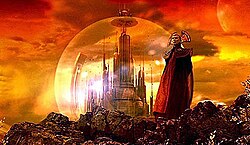It starts small, as something inchoate. You don't know why you're drawn to a topic, a setting, a subject. There's just something compelling--a magnetic field that pulls at you as you begin to type. Much of my work starts with this kind of magnetism. As the subject begins to come together, the streets turn into New York City in the 1980s, or a small hamlet in Tasmania, or The Grossinger's hotel in the 1940s Borscht Belt. The themes, the plots, the characters are all driven by instinct and nostalgia. Something in me wants to explore the correspondences, the connections. The whole process of writing, fiction and poetry at least, for me has an undercurrent of nostalgia that is becoming clearer as I move deeper into my third novel, an exploration of the creative urge, love, loss and time travel through the DNA wormhole that links the 1940s and 2011.
The more I think about it, the more I realise that this is a motivating force for many authors, not just myself. We need to find a spot that we've somehow missed, to explore a notion that bugs us, and then, like a grain of sand in an oyster, to pearlise it and create something that is no longer personal and lost, but universal and found. I've been exploring this notion, not only in my own work as I aim my fingers into the past, but in the work of others as I traverse literary landscapes that work best when they invoke a similar nostalgia in me. The sense of loss that motivates the characters is familiar and relevant to the modern reader regardless of whether the book is set in Victorian England or a mythical planet in the constellation of Kasterborous. Reflecting on the past by exploring its meaning to the present and that disassociative, uncomfortable sensation of not being able to ever get back to that point creates a visceral sensation that is empathetic and powerful. There's something there that you have to pick at. Something Proustian in the taste of those madelines, or the smell of that long forgotten perfume.
It's suprisingly painful, both as reader and as writer, to go to that place, and explore the sensations, knowing that this is all we have left of the past. Bringing it back to life, at the same time as we distance ourselves from it through irony, creates a very post-modern type of novel that I'm finding to be increasingly relevant to the modern sensibility.

No comments:
Post a Comment